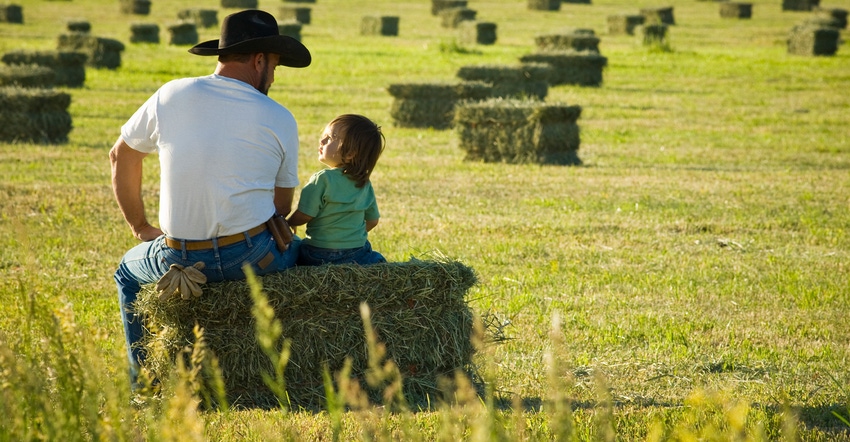January 8, 2020

“One of the most troubling signals coming from the survey relates to the next generation of farmers,” wrote Eric Bohl, director of public affairs for Missouri Farm Bureau. It caught my attention.
Bohl shared results from the latest Missouri Farm Bureau Farmometer survey taken during the organization’s recent annual meeting in December. In it, members completed a questionnaire on agriculture-related topics — it asks the same questions every year. Bohl said the survey's purpose is to take a “temperature of the farm economy.” This year, it was a little cold.
The survey showed Missouri farmers losing some of their optimism. The number of those farmers who say they are pessimistic about the future was 13.9%, double that of 2018 and four times that of 2017.
Bohl’s argument is that after six years of low commodity prices and two years of record-breaking weather events and trade wars, “farmers’ patience is starting to run out.”
Concerns brewing
My concern came from those who at one time would almost always answer in the affirmative that they want their children to return to the family farm. Bohl said that in past years, almost all respondents said they would recommend that their children follow in their footsteps as farmers.
“The first three years of the survey, the number of people who disagreed never broke 7%,” he wrote. “This year, the number shot up to 15.4%, nearly triple last year’s 5.3%.”
He, too, expressed concern over the survey results. “Hopefully, this only reflects current frustrations and will not lead to fewer young people taking over the family farm,” Bohl wrote.
And so, I wonder, are we at a point where we should start to worry about the future of farming?
Future of food
I, for one, fear what the agriculture landscape would look like if all our generational farm kids left and never returned.
There would be years of knowledge of agronomy and animal science lost. Farms and ranches could be bought by people who come from vastly different backgrounds, with different views of farming.
Trust me, I’ve sat through informational meetings on hemp production where those from the city are just learning agronomics 101. They can’t name the soybean seed on the slide next to the hemp seed, and they don’t know how to adjust soil pH.
In agriculture, we don’t have time to make up for lost knowledge on the farm. Large-scale agriculture production is not something that can be “figured out” over time. Your farms and ranches feed the world. You know how, and you’ve taught your kids how.
Trumping knowledge is one thing that those outside of our industry do not understand — work ethic. I’m sorry, but if people see farming as an investment, a hobby or a new venture, we are in trouble. How many of those “startups” have we seen go by the wayside when people get bored, find it too difficult or, for that matter, lose money in one year?
Not farmers and ranchers. You’ve done the work. You’ve taught future generations to work. We can’t afford to lose that; it is irreplaceable.
Are you tired as farmers and ranchers? Yes. And while it is hard to not be negative about your job, career or life’s work when you are facing challenges at every turn — weather, markets, government, health — we in ag need to shift our attitude, or we may lose our next generation of farmers and ranchers.
So this year, find just a couple of positives and focus on those. Recite them to yourself, your spouse and your kids. It may be all agriculture needs to keep our next generation driving the future of food production.
You May Also Like




